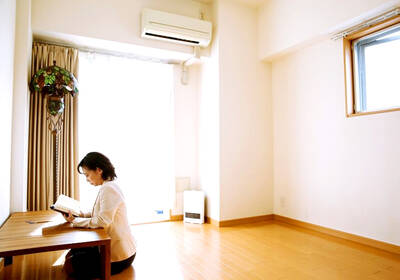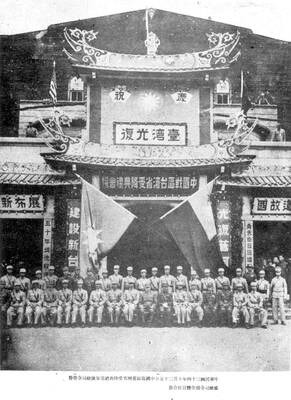公司中的不同空間通常都有專屬的使用規則,而「會議室」(meeting room)的使用規則不外乎是提前預約,以及保持整潔。
以下以一篇會議室使用規則來介紹。
會議室使用規則

Photo courtesy of Pixabay / 照片:Pixabay提供
As part of our ongoing commitment to maintaining a professional and organized work environment, we’d like to share the following rules and guidelines for using our office meeting rooms:
1. Book in Advance: To ensure fair use, please reserve meeting rooms through the booking system at least 24 hours ahead.
2. Be Timely: Respect others’ time. Start and finish meetings as scheduled.
3. Keep it Clean: Leave the room as you found it. Dispose of any trash and wipe down surfaces if needed.
4. Equipment Use: If you use any equipment (e.g., projector, whiteboard), return it to its original state.
5. Noise Level: Keep volume at a considerate level to avoid disturbing others working nearby.
6. No Eating: To maintain cleanliness, refrain from having meals in the meeting rooms.
Adherence to these rules helps us keep our shared spaces functional and pleasant for everyone. Your cooperation is much appreciated.
reserve 預約
reserve最常見的意思是「預約」,除了預約會議室,預定餐廳也是使用這個單字,名詞為reservation。
Please reserve the conference room for our team meeting next Tuesday.
(請為我們下週二的團隊會議預留會議室。)
因為reserve有「保留位置」的意思,所以在職場中也常解釋為「保留意見」,相較no comment「不予置評」客氣一些。
I reserve judgment on the new proposal until I have all the information.
(在掌握所有資訊之前,我將保留對新提案的評價。)
dispose 棄置
dispose 與get rid of 或throw away是同義字,都有「丟棄」的意思。要特別注意dispose 的介係詞要使用of。
After the meeting, please dispose of your coffee cups in the recycle bin.
(會議結束後,請將你的咖啡杯丟進回收桶。)
因為dispose 有「丟棄」的意思,另一個在業界常見的用法是「處理、解決(問題)」,也就是「去除(問題)」。
Our legal team will dispose of the contractual issues before the deal closes.
(我們的法律團隊將在交易結束前處理合同問題。)
dispose 用在餐具上時,disposable utensils 就是「一次性免洗餐具」。
disturb 打擾
disturb 的名詞是disturbance,旅宿業中有時需要掛上請勿打擾的牌子,英文就是(Please) Do not disturb.
Kindly avoid loud discussions in the workspace so as not to disturb others.
(請避免在工作區域大聲討論,以免打擾到他人。)
受打擾後感覺不舒服也可以用disturbed過去分詞作為形容詞使用,表示「不舒服」或「焦慮」的意思。
The sudden changes in the project schedule may disturb the team’s workflow.
(專案時間表的突然改變可能會打擾團隊的工作流程。)
adherence 遵守
adhere to 代表「黏貼」,對規則黏貼,就是「完全遵守、堅守原則」的意思。
Adherence to the new policy is mandatory for all employees.
(所有員工都必須嚴格遵守新的政策。)
The project’s success relies on our adherence to the outlined timeline.
(該項目的成功依賴於我們對所列出的時間表的堅守。)
adhere 是實體的黏貼,兩份變成一份。另一個常見的用法attach,則是「附件」的意思,不一定是用黏貼的,用迴紋針或是訂書針也可以attach形容兩份文件都算是獨立的主體。
refrain 克制
refrain是「禁止、預防」的動詞,後方介係詞會搭配from,表示距離這件事情更遠,注意from後方需要加上名詞,若要使用動詞,需轉化型態變成Ving。
Please refrain from using personal devices during meetings to ensure focus.
(請克制在會議期間使用個人設備,以確保專心。)
Employees are asked to refrain from discussing confidential information in public spaces.
(員工被要求克制在公共場所討論機密信息。)
而職場上有些工作被規定上班時不能使用手機,工作地點就會有Refrain from using cellphones.「禁止使用手機」的標語。
【TOEIC模擬試題】
1. The meeting room has been ______ for our team on Tuesday.
(A) reserved (B) disposed (C) disturbed (D) adhered
2. Please ______ of your coffee cup in the recycle bin after the meeting.
(A) reserve (B) dispose (C) disturb (D) adhere
3. Loud discussions in the work area can ______ other employees.
(A) reserve (B) dispose (C) disturb (D) adhere
4. The success of this project depends on our strict ______ to the timetable.
(A) reserve (B) dispose (C) disturb (D) adherence
5. Employees are asked to ______ from discussing confidential information in public places.
(A) reserve (B) dispose (C) disturb (D) refrain
解析:
1. 正解為(A)。句意為「我們團隊已經在週二預留了那間會議室」,看到是meeting room「會議室」就可以知道選擇reserve「預約」,故(A)為正解。
2. 正解為(B),句意為「請在會議之後把咖啡杯丟至資源回收桶中」。文中的咖啡杯,還有空格後方的of,可作為判斷依據。(A)保留,(B)清除、處理,(C)打擾,(D)堅持。依據題意,以及dispose of+名詞的用法,故(B)為正解。
3. 正解為(C),句意為「在工作區大聲討論可能會打擾到其他的員工」。關鍵是句子一開始的loud discussions「大聲討論」,可能會打擾到其他人,因此只有(C)最適合,故為正解。
4. 正解為(D),句意為「這個專案的成功仰賴我們嚴守時程。」關鍵是空格後方的to及後方的time table「時程」,可知「嚴格遵守」時程是成功的關鍵,故(D)為正解。
5. 正解為(D),句意為「我們要求員工不得在公共場所討論機密資訊」。句子後方的confidential information「機密資訊」與空格後方的from可作為判斷。refrain from discussing「避免討論」符合句意,故(D)為正解
SOURCE: https://www.toeic.com.tw/info/article/toeic-power/news/reserve-meeting-room
文章由TOEIC Program Taiwan · Chun Shin提供:
www.facebook.com/ToeicProgramTaiwan

A: Is K-pop still popular now? B: Sure! The 110,000 tickets for supergroup Blackpink’s two shows to be held this weekend were all snatched up within three minutes. A: Apart from Blackpink, what other K-pop stars are visiting? B: I-dle’s Taiwanese member Yeh Shu-hua, King of K-pop G-Dragon, and Super Junior are all coming soon next month. A: Super Junior’s 2009 hit “Sorry, Sorry” boosted this Korean “Hallyu” to a peak. Let’s go experience SJ’s magic again. A: 韓國流行音樂還是很受歡迎嗎? B: 當然啦,光是天團Blackpink本週末兩場演唱會,11萬張門票3分鐘內就被秒殺! A: 除了Blackpink,還有哪些韓國歌手最近會來台? B: I-dle的台灣成員葉舒華、韓流天王G-Dragon權志龍、Super Junior下月也都將來台。 A: Super Junior 2009年金曲《Sorry, Sorry》曾將「韓流」推上高峰,我們再去重溫一下SJ的魔力吧。

In today’s fast-paced world, many individuals are turning to alternative lifestyles that prioritize sustainability and simplicity. Two such lifestyles are sustainable living and minimalism. They both share some common threads: living more intentionally, reducing our environmental impact, and focusing on what truly matters. 1. Sustainable Living Sustainable living is about making choices that are environmentally friendly in every aspect of one’s life. The primary goal is to minimize one’s ecological footprint, conserve natural resources, and reduce waste. It might sound abstract, but in fact, it is rather easy to practice sustainable living. What we eat has a great impact on the environment. Small

California will phase out certain ultra-processed foods from school meals over the next decade under a first-in-the-nation law signed on Oct. 8 by Gov. Gavin Newsom. The law seeks to define ultra-processed foods, the often super-tasty products typically full of sugar, salt and unhealthy fats. The legislation requires the state’s Department of Public Health to adopt rules by mid-2028 defining “ultra-processed foods of concern” and “restricted school foods.” Schools have to start phasing out those foods by July 2029, and districts will be barred from selling them for breakfast or lunch by July 2035. Vendors will be banned from providing the “foods

對話 Dialogue 清清:華華,你知道這禮拜為什麼又有三天連假嗎? Qīngqing: Huáhua, nǐ zhīdào zhè lǐbài wèishénme yòu yǒu sān tiān liánjià ma? 華華:知道啊!10月25號是臺灣光復節,從今年起,又是可以放假的國定假日了。剛好碰到禮拜六,所以禮拜五多補一天假。 Huáhua: Zhīdào a! Shí yuè èrshíwǔ hào shì Táiwān Guāngfù Jié, cóng jīnnián qǐ, yòu shì kěyǐ fàngjià de guódìng jiàrì le. Gānghǎo pèngdào lǐbài liù, suǒyǐ lǐbài wǔ duō bǔ yì tiān jià. 清清:對了! 我想起來了,聽我爸媽說過,以前十月有好幾天都放假,光復節是其中之一。 Qīngqing: Duìle! Wǒ xiǎng qǐlái le, tīng wǒ bàmā shuōguò, yǐqián shí yuè yǒu hǎojǐ tiān dōu fàngjià, Guāngfù Jié shì qízhōng zhī yī. 華華:光復節是慶祝日本人在二次世界大戰結束後,離開臺灣的日子。 Huáhua: Guāngfù Jié shì qìngzhù Rìběn rén zài Èrcì Shìjiè Dàzhàn jiéshù hòu líkāi Táiwān de rìzi. 清清:那是一九四五年的事了。 Qīngqing: Nà shì yī jiǔ sì wǔ nián de shì le. 華華:沒錯,對臺灣來說,是很重要的歷史。 Huáhua: Méicuò, duì Táiwān